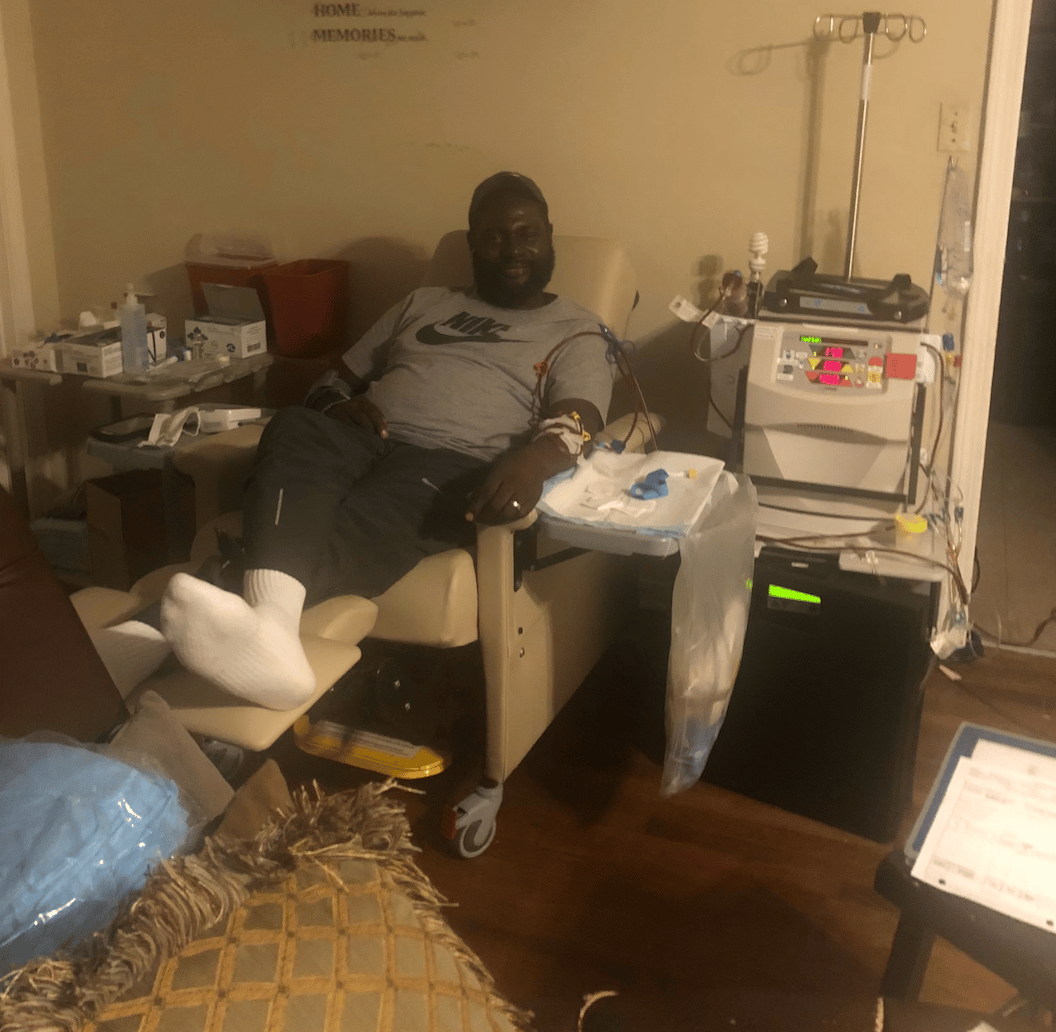Kidney failure and dialysis aren’t easy to face on your own – something that Anthony Williams, a successfully transplanted patient in Jackson, knows all too well. But, while it took a village to save his life, Williams will confess that his denial of the risk of unmanaged hypertension and cigarette smoking opened the door for the development of kidney disease. Williams uses his story to shout from the rooftops: It doesn’t have to end in kidney disease.
More than 700,000 Mississippi adults have high blood pressure (hypertension), and thousands more may be at risk. High blood pressure increases a person’s risk of heart disease and stroke, two of the leading causes of death in the United States. Over time, uncontrolled high blood pressure can cause arteries around the kidneys to narrow, weaken or harden. Kidneys have tiny, finger-like nephrons that filter your blood and keep it clean so it can keep you functioning. Damaged kidney arteries cannot deliver enough blood to their tissue and don’t filter blood well.
Imagine your washing machine lines got clogged or damaged. Your clothes wouldn’t get nearly as washed. Over time your machine would stop working altogether. You’d have no choice but to live in dirty underwear! Going out and getting new undies or a new laundry unit is easy. It’s much harder to locate a new kidney. That’s why heeding your doctor’s warnings and taking care of your body are much better.
Williams wasn’t thinking about his kidneys’ health when his doctor told him he had hypertension as a young adult. “To be honest, I listen to the lies that hypertension medicine would affect me in the bedroom,” shares Williams. “That was a huge mistake. I wish I had listened to my doctors initially, as my wife told me, too.”
Williams credits his wife, a registered nurse, for saving his life by picking up on the signs and symptoms of kidney dysfunction and forcing him to the doctor. Generally, earlier stages of kidney disease are known as 1 to 3. And as kidney disease progresses, one may notice nausea and vomiting, muscle cramps, loss of appetite, swelling in feet and ankles, dry, itchy skin, shortness of breath, trouble sleeping, and urinating too much or too little. Anyone experiencing these symptoms shouldn’t take them lightly but immediately make an appointment with their doctor.
“I remember getting the call from my doctor telling me I had stage 3 kidney disease and would have to start dialysis,” Williams recalls. “I had three cigarettes left in my pack. I broke them all in half and haven’t had a smoke since.”
For nine years, Williams required life-sustaining treatment while he worked toward placement on a transplant list. For much of that time, he treated himself in his home thanks to home dialysis, allowing him to continue doing the things he loves. But his journey was no walk in the park, which is why he credits his wife and his care team’s crucial training and guidance for keeping him healthy and alive until a kidney was available.
“When you’re on the transplant list, they advise you to keep a hospital bag packed,” shared Williams. “If and when it’s your time, you’ve got to be able to go!”
The next memorable phone call from a doctor was from UMMC telling Williams there had been a kidney identified for him. Williams had to be at the hospital within two hours to get prepped for surgery. “I cried, my wife cried, the kids cried,” recalls Williams. “It was a second chance at a life of freedom.”
Freedom came in many different forms after Williams’s kidney transplant. Upon waking, Williams had to relieve himself in the bathroom. It was the first time in five years Williams had used a toilet. Dialysis had been doing that job for him. A year after his successful surgery, Williams took his wife on vacation to Mexico. It was the first vacation Williams didn’t have to bring a dialysis unit with him or miss out on the family fun for treatments. “I got my life back,” said Williams.
Nearly 11,000 people in Mississippi are living with kidney disease. Not all of those are the results of unmanaged hypertension, but a large majority are, and the number will rise. Williams’s message, “Listen to your doctors, take your medicine, and take care of yourself. But if you have kidney disease, you’re not alone.” Knowing how critical his support system was to his transplant success, Williams now speaks to patients at Fresenius Kidney Care clinics to let them know they’re not alone. You can meet Williams and hear his entire testimony on YouTube.







